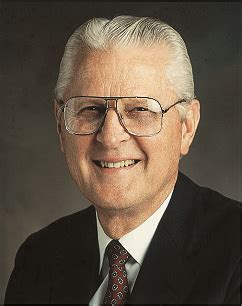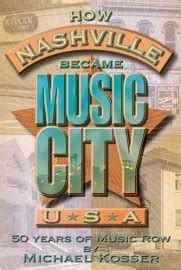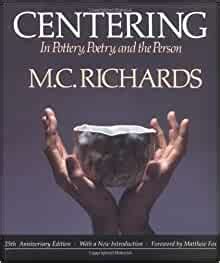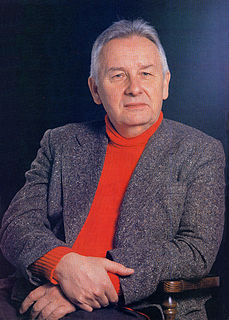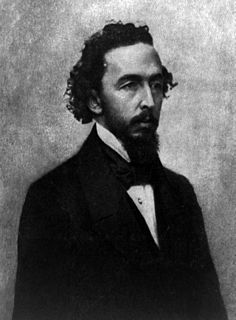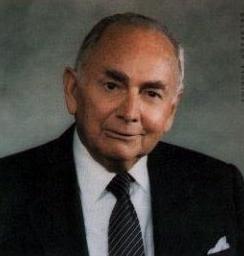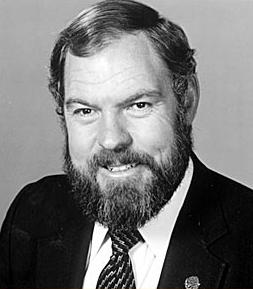Top 638 Listener Quotes & Sayings - Page 11
Explore popular Listener quotes.
Last updated on April 21, 2025.
I'd love to do a song with Tom Waits. Around when I was like 17 or 18, my buddy, D-Money, put me on the Tom Waits and I literally at that point got every one of his albums and kind of studied his music. I like that he provides an entire world for the listener. He's hopefully someone that I could vibe with down the line. I'm not sure how it would sound or even how it could work, but he's always been a huge influence.
I think the best thing about music is that someone could be writing a song that's so personal, and it tells so many other people's story at the same time. It kind of exemplifies that we are all kind of on the same wave[length] - it's amazing how comforting somebody else's story can be, because we have experienced their story in some way or another, and I can totally relate, and I get to feel that feeling and the expression of that emotion. I get to feel like as a listener, that somebody understands me, which is pretty incredible.
What always attracted me to [Bob] Dylan, and what has sustained me as a Dylan listener, or has always continued to surprise me, is his voice, the way he sings, the way he wraps his voice around certain words, the way he backs off from melodic moments, the way he moves forward to grab something in a song that, were anybody else performing it, they would have no idea it was even there.
An acoustic ecologist is a listener who is aware that sound is information. It's information because it's created by events, events produce sound, and that sound has all kinds of data, if you will, that conveys what event occurred, what the materials were, whether it was sudden, slow, loud, in what direction. And because it is information, we can think of it as a message. The acoustic ecologist studies information systems that are both intentional and sometimes wild.
The dictionary describes a selfish person as one who is 'concerned excessively or exclusively with oneself: seeking pleasure or well-being without regard for others.' May we add, a selfish person is often one who refers to 'I,' 'me,' and 'mine' rather than to 'we,' 'ours,' 'yours,' or 'theirs.' This person is anxious to be in the limelight, to be on center stage in life's little dramas. He or she may be a poor listener, or a conversation monopolizer. Selfishness is the great unknown sin. No selfish person ever thought himself to be selfish.
The way in which the photograph records experience is also different from the way of language. Language makes sense only when it is presented as a sequence of propositions. Meaning is distorted when a word or sentence is, as we say, taken out of context; when a reader or listener is deprived of what was said before, and after. But there is no such thing as a photograph taken out of context, for a photograph does not require one. In fact, the point of photography is to isolate images from context, so as to make them visible in a different way.
While the difference between a bad sermon and a good sermon is mainly the responsibility of the preacher, the difference between good preaching and great preaching lies mainly in the work of the Holy Spirit. . . . We should do the work it takes to make our communication good and leave it up to God how and how often he makes it great for the listener.
My faith, I mean, that's such a personal aspect that a lot of times, of course it's going to come out through the song. But at the same time, I'm not a religious salesman. I feel like God doesn't really need a salesman, and what these songs are are simply my interactions with this life and learning. I guess the bottom line is the songs are really honest, you know what I mean. That faith is going to come through. If the listener is looking for it, that's definitely a part of it.
Here's some free advice; like the folkies of yore, you need to be not just a writer of songs, you need to be a lover of songs, a listener of songs and a collector of songs. If you hear a song in a club that knocks you out or you hear an old recording of a great song you never knew existed, it does not diminish you to record it; it actually exalts you because you have brought a great song from obscurity to the ear of the public.
The subject matter covered in Carmina stays pretty basic: love, lust, the pleasures of drinking and the heightened moods evoked by springtime. These primitive and persistently relevant themes are nicely camouflaged by the Latin and old German texts, so the listener can actually feign ignorance while listening to virtually X-rated lyrics. (Veni Veni Venias! Come, come come now!)The music itself toggles between huge forces and a single voice, juxtaposing majesty and intimacy with ease.
I hate irony, particularly when it is used because there isn't any message or to hide that someone hasn't any story to tell. Just like when someone only spews out a stack of cool words which don't mean anything and then has the gall to call it art. I always want to create a bridge between us and the listener, and I want it to be so that kids want to create for themselves a story or a context of the words.
I'm hugely inspired by music. I am a big listener of 60's and 70's classic rock. And i really just love the overall freedom of that time, of the late 60's and 70's. I love that you had so many different ways of expressing yourself, fashion was really one of them, the idea of clashing didn't exist, and people were using clothes as an opportunity to express who they were. That is inspiring to me - you could mix textiles, fabrics, you were 100% who you were, and that's where my main inspiration comes from.
What I love most about playing in front of people has something to do with a certain kind of energy exchange. The attention and appreciation of my audience feeds back into my playing. It really seems as if there is a true and equal give and take between performer and listener, making me aware of how much I depend on my audience. And since the audience is different every night, the music being played will differ too. Every space I performed in has its own magic and spirit.
They ended every speech with the word hiro, which means: like I said. Thus each man took responsibility for intruding into the inarticulate murmur of the spheres. To hiro they added the word koue, a cry of joy or distress, according to whether it was sung or howled. Thus they essayed to piece the mysterious curtain which hangs between all talking men: at the end of every utterance a man stepped back, so to speak, and attempted to interpret his words to the listener, attempted to subvert the beguiling intellect with the noise of true emotion.
We should all know this: that listening is not talking; [it] is the gifted and great role and the imaginative role. And the true listener is much more beloved, magnetic than the talker, and he is more effective, and learns more and does more good. And so try listening. Listen to your wife, your husband, your father, your mother, your children, your friends; to those who love you and those who don't, to those who bore you, to your enemies. It will work a small miracle. And perhaps a great one.
A woman once described a friend of hers as being such a keen listener that even the trees leaned toward her, as if they were speaking their innermost secrets into her listening ears. Over the years I’ve envisioned that woman’s silence, a hearing full and open enough that the world told her its stories. The green leaves turned toward her, whispering tales of soft breezes and the murmurs of leaf against leaf.
And with listening, too, it seems to me, it is not the ear that hears, it is not the physical organ that performs the act of inner receptivity. It is the total person who hears. Sometimes the skin seems to be the best listener, as it prickles and thrills, say to a sound or a silence; or the fantasy, the imagination: how it bursts into inner pictures as it listens and then responds by pressing its language, its forms, into the listening clay. To be open to what we hear, to be open in what we say. .
We are living in a period in which many people have changed their mind about what the use of music is or could be for them. Something that doesn't speak or talk like a human being, that doesn't know its definition in the dictionary or its theory in the schools, that expresses itself simply by the fact of its vibrations. People paying attention to vibratory activity, not in reaction to a fixed ideal performance, but each time attentively to how it happens to be this time, not necessarily two times the same. A music that transports the listener to the moment where he is.
The musical emotion springs precisely from the fact that at each moment the composer withholds or adds more or less than the listener anticipates on the basis of a pattern that he thinks he can guess, but that he is incapable of wholly divining. If the composer withholds more than we anticipate, we experience a delicious falling sensation; we feel we have been torn from a stable point on the musical ladder and thrust into the void. When the composer withholds less, the opposite occurs: he forces us to perform gymnastic exercises more skillful than our own.
The talker has found a hearer but not a listener; and though he may talk his very best for his own sake, you will find that his mental movements are erratic: they have no fixed centre and no definite object. His talk is like the water of a canal whose banks have given way, which rolls aimlessly hither and thither, without fulfilling any useful function, though it is the same water which was so helpful and serviceable, when it was confined within clearly marked limits by the restraining force of its earthy boundaries.
There's a different physiology happening between the sound waves and the body that doesn't happen with music playing off the computer. About five years ago, I got a turntable that hooks up to your computer, and I put the vinyl in there and I listened to it back-to-back with a CD, and it didn't even compare. But people don't have time to go track down vinyl, lower it in, all that. And they probably don't care. It's hard to make music knowing that it's not going to be received by the listener in the way that it should be.
The world's history is a divine poem, of which the history of every nation is a canto, and every man a word. Its strains have been pealing along down the centuries, and though there have been mingled the discords of warring cannon and dying men, yet to the Christian philosopher and historian - the humble listener - there has been a Divine melody running through the song which speaks of hope and halcyon days to come.
I wanted to pack a lot into the lyric, but not go beyond its bounds. Some have written that I wanted to expand what the lyric could do. I just want the hugeness of experience-which includes philosophical discursiveness-to move at a rate of speed that kept it (because all within one unity of experience) emotional. Also, often, questions became the way the poems propelled themselves forward It brings the reader in as a listener to a confession[.] A poem is a private story, after all, no matter how apparently public. The reader is always overhearing a confession.
One must have a mind of winter to regard the frost and the boughs of the pine trees, crusted with snow, And have been cold a long time, to behold the junipers, shagged with ice, the spruces, rough in the distant glitter of the January sun, and not to think of any misery in the sound of the wind, in the sound of a few leaves, which is the sound of the land, full of the same wind, blowing in the same bare place for the listener, who listens in the snow, and, nothing herself, beholds nothing that is not there, and the nothing that is.
I want my music to be something that people use in order to access parts of themselves. So in that sense, every piece I write is about all emotions at once, about the lines in between. It's never only about one thing or another. It's emotionally getting at those things that we can't really describe - things for which we don't have labels. So yes, it's about something, and it has a use. It's neither about nothing nor about something concrete - it's about what you bring to it as a listener.
A successful song comes to sing itself inside the listener. It is cellular and seismic, a wave coalescing in the mind and in the flesh. There is a message outside and a message inside, and those messages are the same, like the pat and thud of two heartbeats, one within you, one surrounding. The message of the lullaby is that it’s okay to dim the eyes for a time, to lose sight of yourself as you sleep and as you grow: if you drift, it says, you’ll drift ashore: if you fall, you will fall into place.
I do not choose my listeners. What I mean is, I never write for my listeners. I think about my audience, but I am not writing for them. I have something to tell them, but the audience must also put a certain effort into it. But I never wrote for an audience and never will write for one, because you have to give the listener something and he has to make an effort in order to understand certain things.
In fiction, I exercise my nosiness. I am as curious as my cats, and indeed that has led to trouble often enough and used up several of my nine lives. I am an avid listener. I am fascinated by other people's lives, the choices they make and how that works out through time, what they have done and left undone, what they tell me and what they keep secret and silent, what they lie about and what they confess, what they are proud of and what shames them, what they hope for and what they fear. The source of my fiction is the desire to understand people and their choices through time.
When I create music, the feeling that you get... I get first. You [the listener] have a delayed experience with the feeling I initially get when I have a creative insight. Not just the voice, but all the creativity - the production, the idea, the concept, the music involved. There is a high. There is an emotional experience that happens when everything comes together... I made music as consistently as I did, especially back in the day, because it made me feel so good... When everything is on, it's a wonderful feeling.
Prophetic utterance, like poetic utterance, transforms experience and moves the receiver to new attitudes. The kinds of experience--the recognitions or revelations--out of which both prophecy and poetry emerge, are such as to stir the prophet or poet to speech that may exceed their own known capacities; they are "inspired," they breathe in revelation and breathe out new words; and by so doing they transfer over to the listener or reader a parallel experience, a parallel intensity, which impels that person into new attitudes and new actions.
The songs are not meant to be real life. They're meant to have a psychic - rather than a factual - bearing on the listener. It's rare that a song grounded in reality moves me because I don't feel like I'm getting the whole story. Songs are made to exist in and of themselves, like a great James Jones or Robert Louis Stevenson novel - they're not autobiographical, and yet there's a reality in every single page. It's real life of the imagination.
Whether I affect one person or an entire family, or even a group of people, I feel like I have resources and education and ability and skills that some people may not be fortunate enough to acquire. But by sharing and inquiring, being a listener, and being interested in the stories of other people and their lives, I can also pull things out and say "What can I do for them? What can I share with them that may alleviate some of their suffering?"
The source of each accordant strain
Lies deeper than the Poet's brain.
First from the people's heart must spring
The passions which he learns to sing;
They are the wind, the harp is he,
To voice their fitful melody,--
The language of their varying fate,
Their pride, grief, love, ambition, hate,--
The talisman which holds inwrought
The touchstone of the listener's thought;
That penetrates each vain disguise,
And brings his secret to his eyes.
The best way to sell yourself to others is first to sell the others to yourself. Check yourself against this list of obstacles to a pleasing personality: interrupting others; sarcasm; vanity; being a poor listener; insincere flattery; finding fault; challenging others without good cause; giving unsolicited advice; complaining; attitude of superiority; envy of others' success; poor posture and dress.
I really tried to push every genre that I could into this record. I wanted every song to have this feel, where as soon as the listener tunes in, they say "That's CoJo, that's Cody right there." That being said, it is a little different. There's Americana, there's Bluegrass, there's some rock, there's some really George Jones-style stuff on it, slow-style Ray Price country elements, there's some modern country, a little of this and a little of that. We tried to push a lot for show versatility, because I grew up with a lot of versatility in my music.
The focus of my life begins at home with family, loved ones and friends. I want to use my resources to create a secure environment that fosters love, learning, laughter and mutual success. I will protect and value integrity. I will admit and quickly correct my mistakes. I will be a self-starter. I will be a caring person. I will be a good listener with an open mind. I will continue to grow and learn. I will facilitate and celebrate the success of others.
The receptive attitude enables one mind to fix itself to another as by spiritual grappling-irons. When you see that every word you utter us taken in, and weighed, and measured by your listener, you cannot free yourself from the influence of his presence. You are compelled to have in your thoughts not only the words you utter, but the man to whom they are spoken. You must not only talk, and talk well, but you must talk to him.
As far as the media is concerned, they ought to hate me. Before I came along, they had a monopoly. Before I came along, nationally all there was, was the three networks, the big newspapers, and CNN. When I started in '88, that was it. And now look. That monopoly they had is gone. Now there is Fox News, from 1996. That was nine years after I started. You got all kinds of conservative talk radio out there now. And that's done nothing but grow. I have not lost a single listener because of all the other shows. We've grown the pie, so to speak.




